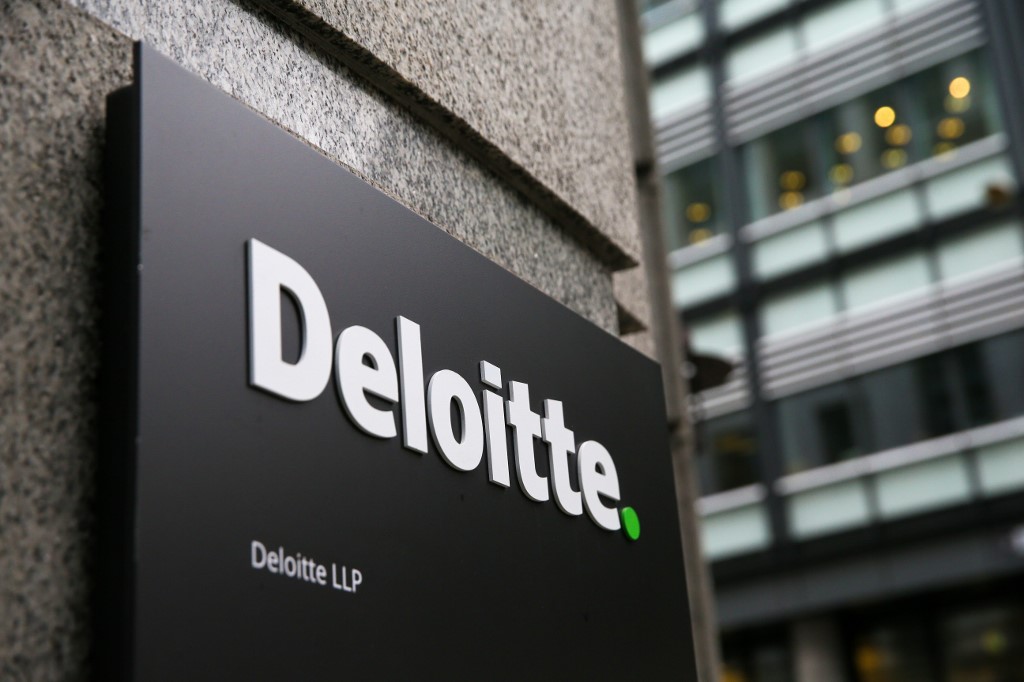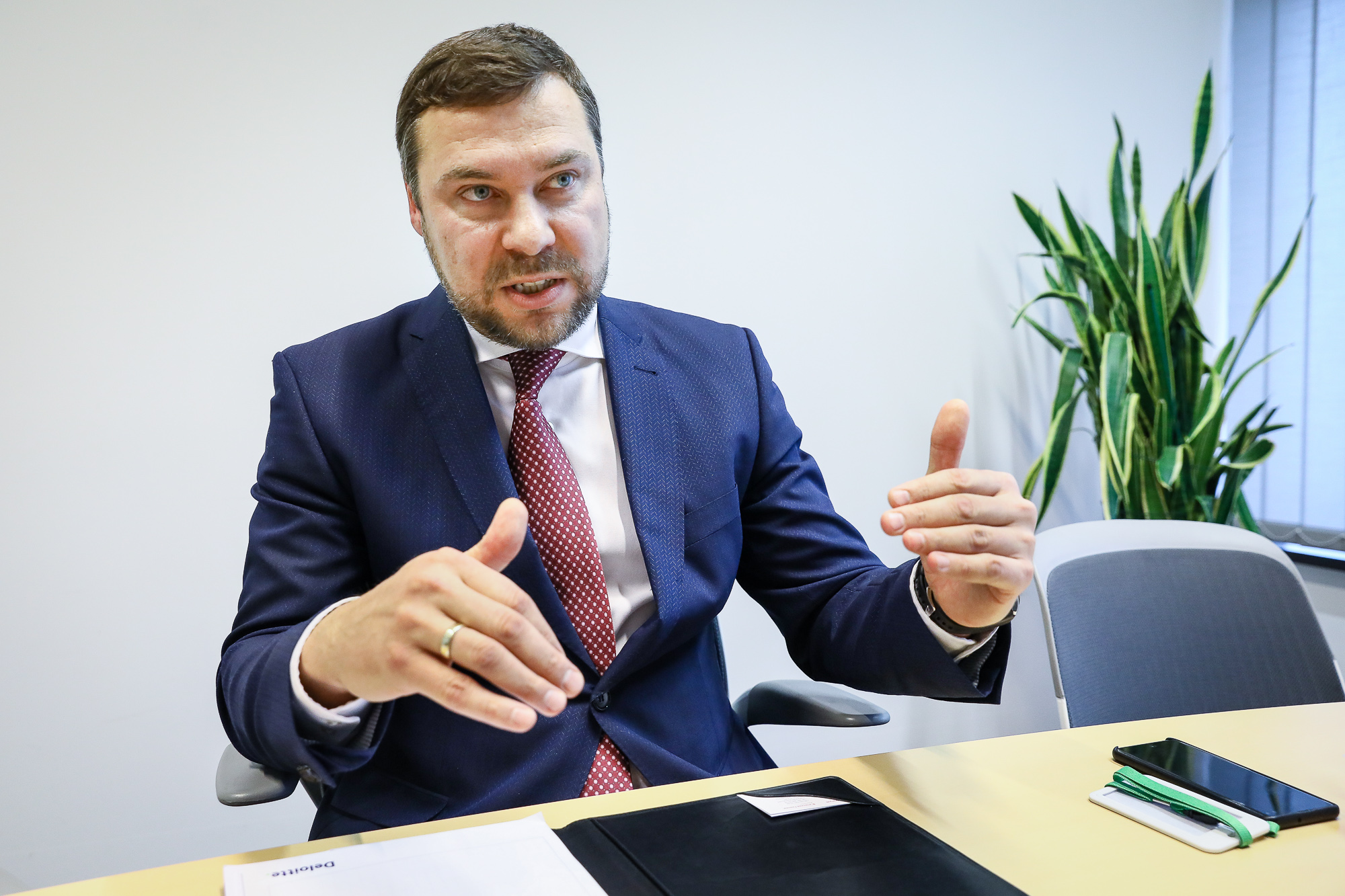Name: Sergiy Kulyk
Title: Managing Partner at Deloitte Ukraine
Nationality: Ukrainian
Age: 44
How to succeed in Ukraine: Build the right team, which takes into account the local specifics of the market and wants to develop it.
For Sergiy Kulyk, the client isn’t always right. That’s because his clients expect him to tell them when they’re wrong.
Kulyk, 44, is among Ukraine’s top auditors with 20 years of experience. And in a country where base erosion and profit shifting cost the state an estimated $40-50 billion annually, he is always busy.
He manages the Ukrainian branch of U.S. accounting firm Deloitte and, for him, creating a clear picture of a company’s books and establishing that “the numbers provided in (financial) reports are correct and do not contain flaws” are an essential mechanism against corruption.
Deloitte itself is a global giant in the financial industry, employing more than 300,000 people worldwide with a reported revenue of $46.2 billion in 2019.
Over the last two years, Deloitte’s business in Ukraine has been better than its global average: In 2018, the company’s local business grew by 12% and its audit division grew by 13%. The business’s consulting division grew by 65% in 2018.
Last year, Deloitte’s audit activities earned the company $19.8 million and Kulyk expects Deloitte’s business to grow by 12% in 2020 as well.
Ukraine remains a developing market, and audit firms grow faster in such economies, the auditor says. But Ukraine’s transition to international accounting standards also spurs auditors’ business in Ukraine. Deloitte has capitalized this the transition as well.
It’s hard to say what market share Deloitte commands, but the rule of thumb is that the Big Four audit firms – EY, PwC, KPMG, and Deloitte itself – control 70% of the market.
Parting with Zhevago
According to Kulyk, Deloitte’s operations in Ukraine often require the executive to weigh investment strategies that affect more than the company’s bottom line.
“Building a brand is really hard,” Kulyk says, “but ruining it is very easy, by a single wrong action.”
Striving to retain its good reputation, Deloitte parted in 2019 with lucrative client Ferrexpo, a Swiss holding company managing Ukrainian iron ore assets that belongs to Kostyantyn Zhevago, a Ukrainian currently wanted in the country on embezzlement charges.
“Of course, we do not enjoy losing clients,” Kulyk said. But “there are cases when we decide that we cannot continue cooperation with a client. There is no client who stands above everything.”

A Deloitte logo is pictured on a sign outside the company’s offices in London on Sept. 25, 2017. (AFP)
Bond with Naftogaz
Deloitte audits companies that set the pace of Ukraine’s economy.
For example, Kulyk has been auditing financial reports of Naftogaz, Ukraine’s strategic state oil and gas company, since 2014, raking in Hr 41.8 million ($1.8 million) for each two-year audit of Naftogaz’s financials.
And Kulyk sees his work, exemplified by Deloitte’s impact at Naftogaz, as a significant driver of reform among Ukraine’s heavyweight manufacturers.
“If you try to compare the audit opinion of Naftogaz for 2012-2013 with the audit opinion for 2018, you will see a big difference.” Back in 2012, Naftogaz had so many problems that it was impossible to issue an audit opinion, Kulyk says.
In the last five years, corporate governance at Naftogaz has improved, and auditors have contributed to it. “2018 is the first year in the new history of Naftogaz, at least, when they have received a so-called ‘clear conclusion,’” Kulyk says.
This year, Deloitte audited Naftogaz for its eurobond issue, too, earning Hr 6.2 million ($265,000) per eurobond-related audit.
Agricultural giants Myronivsky Hliboproduct (MHP) and Kernel also relied on Kulyk’s audit for their eurobond issues through 2019.
Both Deloitte and Kulyk see a long-term mission in this work as they help Ukraine’s major economic player move in line with international financial tracking standards.

Sergiy Kulyk, managing partner at Deloitte Ukraine, talked about his experience in the audit sector with the Kyiv Post in his office in central Kyiv. (Oleg Petrasiuk)
Auditors’ mistakes
The stakes for Kulyk’s work are high, and auditing failures cost societies a lot in terms of economic security.
Audit mistakes committed by Kulyk’s competitors at PwC Ukraine even contributed to the crisis at PrivatBank, which forced taxpayers to cover a $5.5-billion financial hole.
“It would be tactless of me to comment on the colleagues’ actions,” Kulyk says of the issue. But he summarizes the general problem succinctly.
“There are traffic rules and there are people violating them,” he continues, “as a consequence of certain human error, or a certain violation of standards.”
Still, he warns against looking at audit results as a guarantee against all possible misdeeds within a company, because “even auditing standards say that although well-planned and well-performed, an audit might not reveal a mistake, especially if it’s the result of fraud.”
